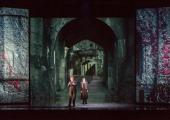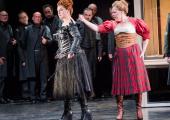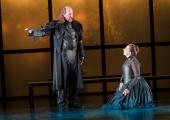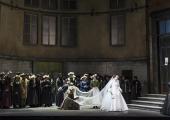William Tell, Welsh National Opera
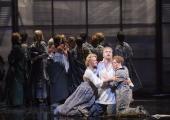
Rossini's last opera is finely done but has rather too many longueurs
A few months ago, while looking something up about Liszt’s piano piece “Chapelle de Guillaume Tell,” I discovered to my horror that William Tell – like Robin Hood – may never have existed. Even the apple, like the one in Genesis (there is no apple in Genesis), seems to have been made up by someone or other. Tell none the less lives on, if nowhere else, in Schiller’s play and Rossini’s opera based on it, of which everyone knows the overture and – perhaps without realizing it – some of the ballet music.

